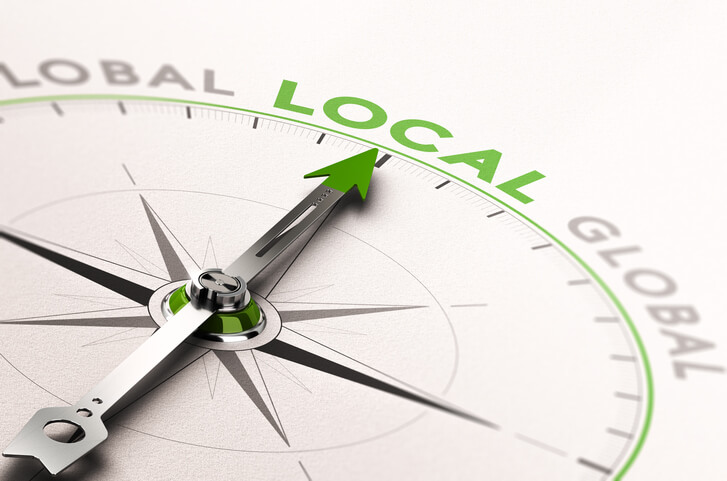By Miriam Ellis
You need the community you serve to find your local business in Google’s local results. Which five elements most influence which businesses Google shows to local searchers? We’ll take our cues from the 2017 Local Search Ranking Factors survey, an annual poll of Local SEO experts conducted by Whitespark and hosted by Moz.
1. Proximity of Address to the Point of Search
How near a person is to your business’ location when they are searching for something heavily influences your chances of appearing in Google’s local results. For example, a consumer located in San Francisco’s North Beach neighborhood searching for “pizza” is going to be shown different restaurants than if they drive over to the Sunset district and perform the same search.
While you can’t control where someone is located at the time he seeks a business, you can do everything in your power to ensure Google knows you are a relevant result for searchers nearest you. Be sure:
- Your website and your listings on platforms like Google, Yelp and Facebook contain your accurate business information.
- Your website’s content highlights both the city and (in sizeable cities) the neighborhood you serve.
2. Physical Address in City of Search
Unless your business is located in a rural area or in a market with little or no competition, don’t expect to rank in Google’s local results for any city in which you lack a physical location.
For example, a dentist in Dallas can work to rank well for searches like “dentist Dallas” or for the simple search “dentist” being performed by people while they are physically located in Dallas. However, if the business is located in Plano beyond Dallas’ city limits, it shouldn’t expect to rank in the local results for Dallas-related searches.
Google’s bias toward the physical locations of businesses can be challenging for:
- Service area businesses like plumbers which have one physical office from which they serve many towns.
- Businesses located just outside big city borders.
Two common solutions to this challenge:
- Pay Google for Adwords advertising in the desired cities
- Develop website content that’s strong enough to gain organic, rather than local, rankings for the desired cities
3. Proper Google My Business Category Associations
Your business is allowed to select up to 10 categories in the Google My Business dashboard when you create a Google My Business listing. Failure to choose the best categories undermines efforts to rank well in the local results.
According to Google’s guidelines, they want you to choose the fewest and narrowest categories (e.g. “Mexican Restaurant” instead of just “Restaurant”) and to avoid category repetition (don’t choose both “Restaurant” and “Mexican Restaurant” because it’s repetitive). To help you see which Google categories are available to you, use this free tool.
4. Quality/Authority of Inbound Links to Domain
Google views certain websites as authoritative. For example, Denver’s chamber of commerce site might be seen as an authoritative source for information about businesses in that city. The more that authoritative websites link to yours, the better your chances of ranking well, as Google views each of these link as a sort of “vote” for the relevance/quality of your business.
Local businesses can earn voluntary links when the quality of the content they publish is good enough to be shared. They can also actively seek links by building relationships with others in their city or industry. Good authoritative link sources can include:
- Local business organizations
- Local news sites
- Popular local blogs
- Sponsoring events and teams
- Industry publications
If your publicity or participation earns your business links from any of the above, it can increase your chances of ranking well locally. The more competitive your market, the more links you will need to earn. Need inspiration? Try this free local linkbuilding questionnaire to help you brainstorm opportunities.
5. Consistency of Citations on the Primary Data Sources
In this context, “citations” refers to your local business listings on the primary local business data sources of Acxiom, Neustar Localeze, Factual and Infogroup. Your name, address, phone number and other data must be accurate on these major sources which feed information to so many online platforms. Incorrect information not only misdirects consumers (representing a revenue loss) but can also cause Google not to trust the data they find around the web about your business (representing a ranking opportunity loss).
You can quickly check the consistency of your listings via this free tool. Depending on the size of your business (single-location, multi-location or large enterprise) you mayopt to automate the management of your citations via a paid service, as manual management is commonly too time consuming.
In sum, Google’s local rankings are believed to be influenced by several hundred factors. Get the top five right before moving on to the others.
Miriam Ellis is part of the local search team at Moz. When she’s not writing the monthly Moz Local newsletter and answering questions in the Q&A forum, she’s helping her clients master their local SEO strategies at her own firm Solas Web Design.







